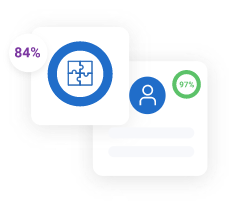- Application
- Information
Apply through Brive
We are official partners! Complete your application for free and earn benefits!
Free review on your application |
1:1 counselling by certified consultants |
Higher acceptance rate on your top choices |
Duration
4 Years
Language
English
Program Description
The bachelor in Computer Engineering (BSc) is intended to qualify students to begin a professional career in the field as Engineering professionals or to pursue further advanced post-graduate studies at the level of a Masters's or Doctorate degree.
The major engineering courses of the bachelor in Computer Engineering (BSc) contain, apart from theory and fundamental principles, elements of analysis and design, as well as significant laboratory work.
The major engineering courses of the bachelor in Computer Engineering (BSc) contain, apart from theory and fundamental principles, elements of analysis and design, as well as significant laboratory work.
Entry Requirements

Are you eligible to apply?
Sign up, check the entry requirements, and find out your compatibility with the program.
Learning Outcomes
- Show solid foundation in fundamental areas of mathematics such as differential and integral calculus, linear algebra and discrete mathematics, science including physics and engineering; knowledge of probability and statistics applicable to computer engineering. Ability to apply this knowledge to solve engineering problems.
- Prove breadth of knowledge in basic areas of Computer Engineering including electric circuits, digital and analogue electronics, numerical methods, signals and systems, signal processing, microprocessors, computer organization and architecture, data communication and computer networks, programming, systems analysis and design, data structures and operating systems.
- Demonstrate in-depth knowledge and technical expertise in at least one of the specialized fields of computer systems and networks and software engineering and applications.
- Have broad education necessary to understand the impact of engineering solutions in a global, economic, environmental, and societal context.
- Identify, formulate and solve engineering problems using techniques, skills, creative thinking and modern engineering tools necessary for engineering practice.
- Show advanced knowledge of basic computer and electronic components and their use in analogue and digital circuits and ability to design a system, component, or process to meet desired needs.
- Develop and use models for the analysis and design of components and systems and ability to design, conduct and troubleshoot laboratory work involving engineering technology as well as analyze and interpret data.
- Apply acquired knowledge and analytical tools to solve engineering problems.
- Function on a multi-disciplinary team and to perform in leadership roles.
- Expand their knowledge of contemporary issues and understanding of the importance of considering economic, social and ethical factors in engineering design and practice.
- Communicate ideas effectively.
- Recognize the need for and the ability to engage in life-long learning.
More
Curriculum
Jobs - Careers
- Automation companies to program computers and microcontrollers for specific applications.
- IT companies to analyze user needs and design application-specific computer systems.
- Software development companies as programmers/software engineer.
- Computer hardware companies to design computer architectures and networks.
- Big firms as IT and/or network engineer.
- Telecommunication companies to design and monitor large-scale telecommunication systems.
- Electronics industry to design circuits for a wide range of applications such as mobile phones, electronic gadgets, televisions, cameras, entertainment devices, etc..
- Companies that design and implement algorithms for the optimization in efficiency and performance of engineering applications.
- Large, multi-national companies as consultants in the fields of telecommunications, semiconductors, electronics, and networks.
- Army, navy, and defense companies.
- High schools as teachers of technology and computer science.
More
Need help applying to this program?
Schedule a free 20-minute counseling session today!
Similar programs |